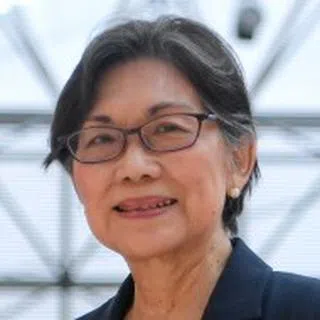Chan Heng Chee: Small state in a turbulent world
Chan Heng Chee, ambassador-at-large and professor at the Lee Kuan Yew Centre for Innovative Cities, Singapore University of Technology and Design, delivered a speech at the Reinventing Destiny conference on 14 August, held in commemoration of the 100th birth year anniversary of Mr Lee Kuan Yew, Singapore's founding prime minister. She spoke about how strengthening Singapore as a nation and being part of an inclusive regional grouping like ASEAN could help the city state better survive these divisive and conflictual times. Here is the edited transcript of her speech.
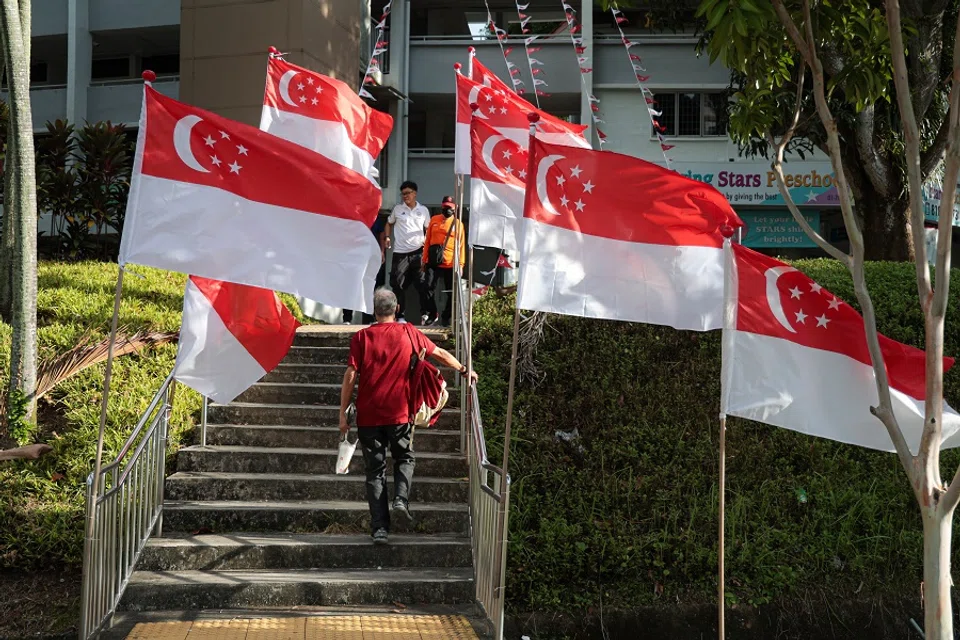
I should begin by saying Happy Birthday to Mr Lee Kuan Yew. It has been eight years since he passed away. He would have been deeply concerned by what is happening in the external environment and he would not be amused by what is happening internally, but I believe this is not the moment when he would jump out of his grave as he promised if he saw Singapore going terribly wrong.
Singapore has done very well for the last 60 years since independence. We weathered the ups and downs of global financial crises, recessions and structural reforms, but the intense geopolitical rivalry between the US and China, complicated by the Russian invasion of Ukraine, has converted our region, East Asia, unprecedentedly into a dangerous hotspot.
A morphing world
There is no doubt our internal good governance and cohesion contributed hugely to our success. We became an independent state at the time of American unwavering leadership in a bipolar world during the Cold War. Fortuitously after our independence, the underlying conditions or trends were for the integration of the world economies and globalisation.
These trends favoured small states, and Singapore made a living - and still makes a living - from globalisation and prospered through it. China's decision to adopt the market economy with "socialist characteristics" and engage with the world economy created tremendous opportunities for many countries but particularly enabled our region to grow with it.

Sixty years later, tectonic shifts are underway and the world order that we operated in is changing rapidly. We are familiar with the contours of the shifts. The principles of free trade, free flow of investments and globalisation have been widely discredited and resisted in the US, the home of capitalism and the free market economy.
The US itself morphed from a hegemon to a reluctant hegemon, to a superpower in retreat or withdrawal, but has returned as a superpower in full force actively seeking to counter rising China's challenge to its predominance. The structured stability of the old bipolar order has given way to a fragmented multipolarity.
The US is perplexed and adjusting to the emergence of this middle group of states who choose to exercise their sovereignty, identity and agency and pursue multi-alignments.
Finding middle ground
Since the Ukraine war, we clearly see the US and its European allies joined by US treaty allies in Asia aligned on one side and Russia and China on the other. Some would simplistically jump to the conclusion that this is a return to the Cold War order. It is not. This time round there is a large swathe of countries remaining in the third space, the middle, not choosing a side but practicing multi-alignment. They will join the US in some groupings or coalitions depending on the issue, but also join China in their groupings and initiatives. For these countries, alignments are not exclusive.
The US is perplexed and adjusting to the emergence of this middle group of states who choose to exercise their sovereignty, identity and agency and pursue multi-alignments. They have seen this in India, Saudi Arabia and the Gulf States. China will work with this multipolarity because this works in their favour. With multipolarity China can more easily rise to be the peer pole of the US and make its influence felt.
The Biden administration has double-downed and successfully strengthened America's alliances in Europe and Asia. It inspired and created a number of mini-laterals as well as deepened bilateral defence cooperation with the Philippines. In addition to setting up the Quad, the Indo-Pacific Strategy, and AUKUS, NATO has included the Asia Pacific 4 - Australia, New Zealand, Japan and Korea - in its meetings two years in a row.
The NATO 2022 Strategic Concept asserted that Indo Pacific developments in the region impact on Euro-Atlantic security. Joseph Borrell, the EU High Representative on foreign policy in a speech in the debate on China in the European Parliament in April 2023 said, "Taiwan is clearly part of our geostrategic perimeter to guarantee peace." And the US, Japan, Australia and the Philippines agreed to expand defence cooperation in the South China Sea after a quadrilateral meeting this year on the margins of the Shangri-La Dialogue.
All of us have problems with China but we do not see China as an enemy or an adversary. And all ASEAN countries would agree that China has a right to grow.
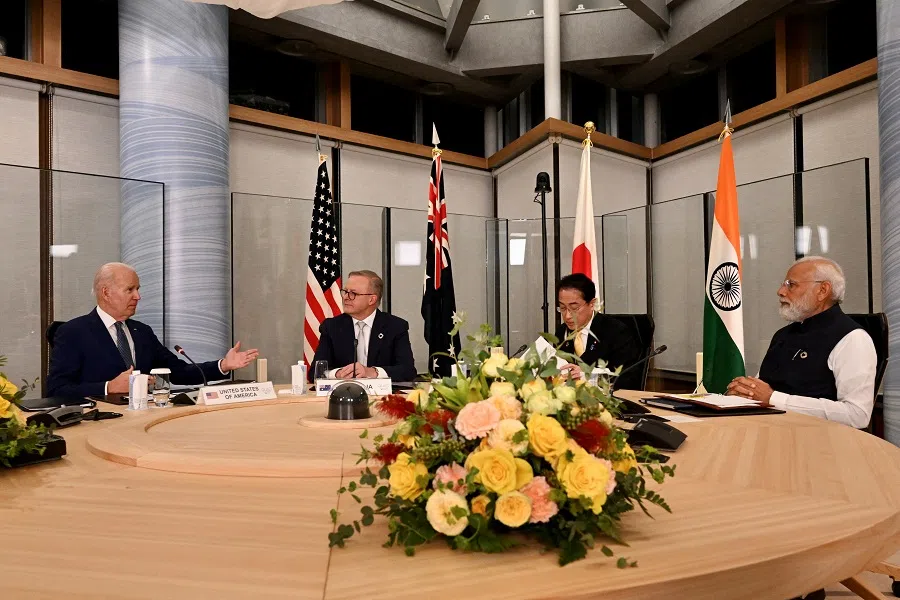
Kevin Rudd, former prime minister of Australia and current Australian ambassador to the US, highlights the importance of building "strategic equilibrium and strategic deterrence" in the environment of geo-strategic contest to help small and medium countries find space to deal with the growing overwhelming military capability of a large neighbour.
Introducing strategic deterrence is important, but it should be calibrated. If strategic deterrence is absolute or near absolute, it could be seen as provocative triggering countervailing alignments. It raises the temperature of the regional theatre and it remains to be seen whether such robust deterrence contributes to the peace and security of the region.
China not an enemy
Before we get further into the discussion, it is crucial for me to point out that countries in Southeast Asia do not see China in the same way that the US does. All of us have problems with China but we do not see China as an enemy or an adversary. And all ASEAN countries would agree that China has a right to grow.
On some days some of us would say China is a bully because their ships harass ASEAN fishermen in the South China Sea near the coastline of their countries, which is why the US FONOPS have been welcomed in the region in recent years. ASEAN member states may rebalance their relationship between the US and China as new leaders take over, but even if they pivot to the US, they would still want to maintain a good relationship with China.
In this competition for strategic influence and power between the US and China, we are only in the second round of a 13-round boxing match. There is no reason to stop at 13. It used to be 15 rounds for the fight of the century. In this case it could be endless rounds. Both sides see it as a zero-sum game till they don't. The fact is the US cannot contain China's growth and China cannot push America out of the Western Pacific.
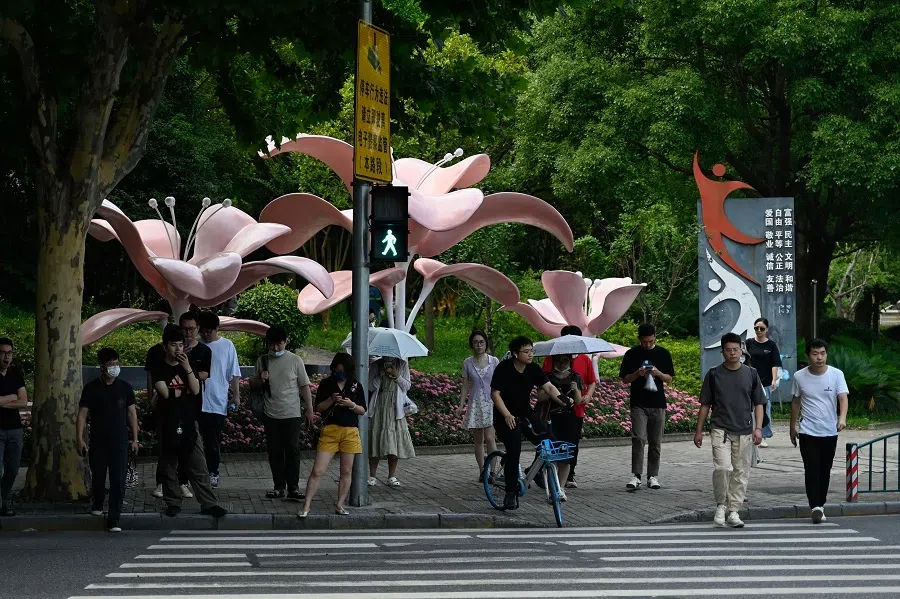
What can Singapore do to preserve our sovereign interest, our independence of action and continue to prosper?
The global situation now favours small and medium-sized states as both sides, the US and its allies and China are trying to court and win as many friends and partners as possible. ASEAN has received renewed attention and interest from the US, so has the Pacific islands and I daresay Africa will attract attention. But pressures will increase from both.
This article appearing in the Washington Post will most certainly be read by the Administration, members of Congress and their staff. There will be questions asked and there will be pressure on Singapore.
Increasing pressure
The Washington Post recently wrote a long investigative report on Lianhe Zaobao alleging the Chinese language media was pushing China's propaganda and falsehoods. The Washington Post highlighted reports of China's attempts to spread its messages and influence through working among Singapore Chinese clan associations and business associations. Singapore is well aware of such activities, and the government is constantly vigilant against agents of influence from all countries. We've had a history of uncovering 'black ops' targeting our population seeking to manipulate sentiments. I always thought with media in Singapore, because of the language diversity of Singapore, the English language Straits Times would draw from English language sources and the Chinese language Lianhe Zaobao would draw more from Chinese language sources.
This article appearing in the Washington Post will most certainly be read by the Administration, members of Congress and their staff. There will be questions asked and there will be pressure on Singapore.
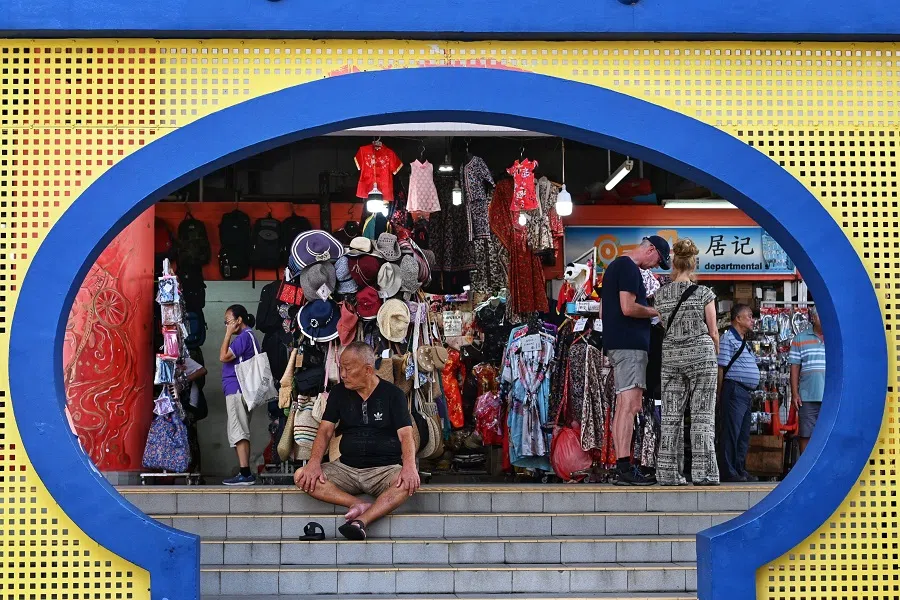
In fact some American strategic thinkers are concerned that Southeast Asia does not appear to be very concerned about the spread of Chinese propaganda and influence and are arguing for the US to counter Chinese propaganda and activities in the region. So we should be prepared for a stepped up battle of narratives much more than currently evident.
What should we do?
Our strategy
The best strategy for Singapore, a small state in these divisive and conflictual times is to do what we have done in the past. We must realise that there are not so many options out there for Singapore. But we must do whatever we did better and refresh our approach and narrative.
1. As a small state we must remain active and let our voice be heard, otherwise we can lose our relevance. Singapore must continue to speak up in global forums, bringing a calm and reasoned voice on what sort of world order we want. We must develop a good narrative. We used to say "we do not want to choose", but now we are stressing rightly that we are behaving in a way that serves our national interest and protects our sovereignty. Sometimes it may mean we have to say "no".
To be able to speak up and be relevant, we have to build up a strong successful economy and society.
2. Though we do not want to choose, in reality we make choices along the way with both sides. We take up initiatives on the table from the US and from China. That is fine. It does not mean we stop developing a strong relationship with the US or with China. We should do both for as long as we can.
It is well-recognised that Singapore has a strategic and comprehensive relationship with the US. The US is our biggest investor and defence partner. We have expanded co-operation to stainability, cybersecurity and now space. China is our largest trading partner and China's Belt and Road Initiative investments go through Singapore. Many of our major corporations as well as SMEs do business in China.
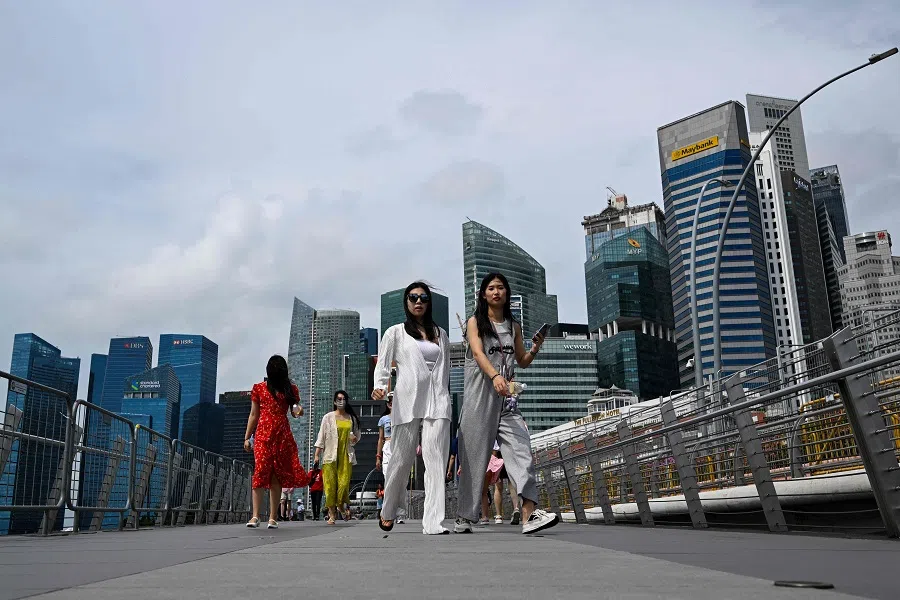
3. To be able to speak up and be relevant, we have to build up a strong successful economy and society. No one during the Cold War would have listened to us if we were a basket case. No one now will listen to a basket case. So building a strong economy and society is important.
4. Finally a small state needs to work with groupings and Singapore has done that very well. In fact we helped to invent some of the groupings. Singapore needs to strengthen ASEAN our regional organisation. It is fashionable to trash ASEAN and point to ASEAN disunity as proof that it will not amount to much or do much.
Regional groupings find it hard to reach consensus and the larger the grouping, the tougher the going. The EU and NATO is not all of one view on how to deal with Russia. There is no consensus on whether or when to admit Ukraine into NATO. And there are different points of view on the use of cluster bombs.
But ASEAN's contribution to regional and global peace and security lies in the ability of some ASEAN member states to create initiatives that are inclusive.
An inclusive ASEAN
It is interesting that in a 2023 Survey on Southeast Asia by ISEAS-Yusuf Ishak Institute, ASEAN was considered by ASEAN countries to be the second most influential economic power in Southeast Asia after China and ahead of the US, Japan or Europe. ASEAN also voted for ASEAN as the leading champion of the global trade agenda. In 2022 they voted for the US and China as No. 1 and 2 champions of the global trade agenda. ASEAN believes in itself. If ASEAN continues to build itself into a more cohesive grouping it has better odds to withstand the pressures from outside powers.
But ASEAN's contribution to regional and global peace and security lies in the ability of some ASEAN member states to create initiatives that are inclusive. It welcomes the participation of the US and China and even Russia. These are for example, the ASEAN Regional Forum (ARF) and the East Asian Summit (EAS). This is enormously important in these divisive times.
The ASEAN Outlook on the Indo-Pacific (AOIP) is inclusive. Indonesia conducted the Komodo multilateral naval exercises as responses to humanitarian crises that included the US, China and Russia in June 2023, though the powers were on poor speaking terms. APEC is one of the few regional organisations that includes both the US and China.
ASEAN believes that China should be included not marginalised from the regional order. A China excluded from regional groupings would be an unpredictable China.
ASEAN is the right convenor for the times. Singapore must be active as a player working with other ASEAN member states interested in preserving the peace, stability and prosperity of the region.
Related: Singapore ambassador to the US responds to Washington Post: Singapore media will not choose sides | Kissinger would miss his old friend Lee Kuan Yew in these troubled times | DPM Heng Swee Keat: The world needs to build new global architecture together | Small nations' survival strategy for a world in flux: Lessons from Rwanda and Timor-Leste | Walking a tightrope to survive: Singapore's position in the Russia-Ukraine war and beyond
